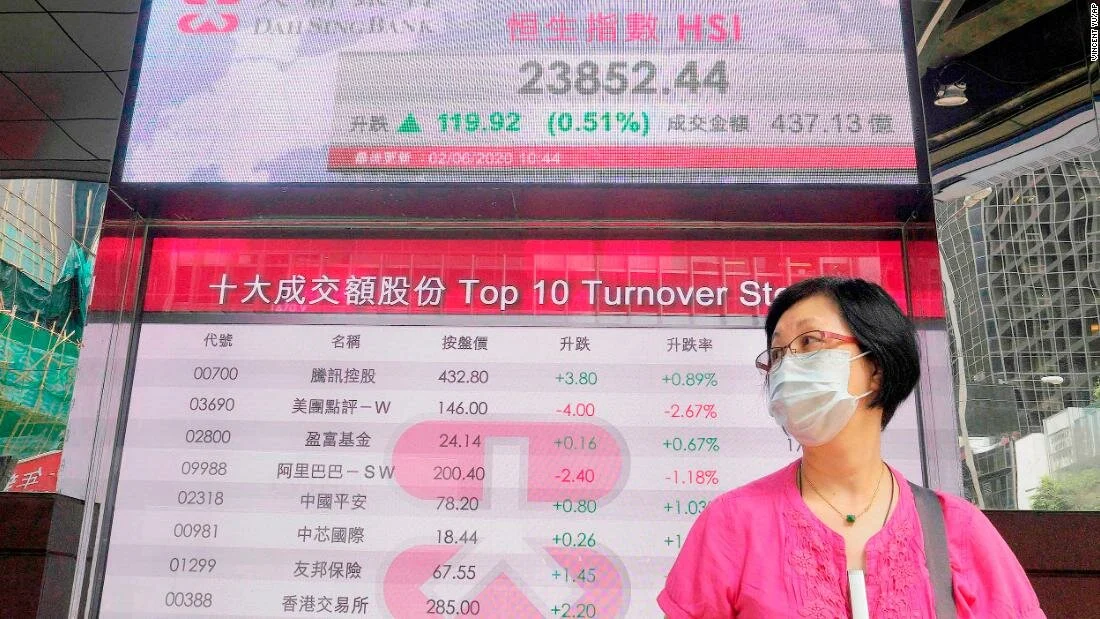NetEase attributed its decision in part to a need for more funding, which it wants to use to expand its business. But it also made clear that it thinks the United States is becoming more hostile for Chinese companies, as regulators and lawmakers consider new rules that would lead to harsher scrutiny. Some restrictions could even make it tougher for companies to go public or keep trading in New York.
The enactment of such rules “could cause investor uncertainty for affected issuers, including us, the market price of our [US shares] could be adversely affected, and we could be de-listed if we are unable to” meet requirements, NetEase wrote in filings to the Hong Kong Stock Exchange.
NetEase’s acknowledgment is a sign of how much the relationship between the United States and China has deteriorated — and how much is at risk for Chinese companies that don’t develop a viable backup plan.
Other companies are considering Hong Kong, too
“China’s tech giants see Hong Kong as middle ground,” said Brock Silvers, chief investment officer for Hong Kong-based Adamas Asset Management.
He added that the city is “under Chinese control, but still with US dollar access.” Unlike mainland China, where there are strict curbs on capital that comes into and out of the country, Hong Kong allows capital to flow more openly. The city’s currency is also freely convertible.
NetEase won’t be the last company to look to Hong Kong, either. Some 37 Chinese companies meet requirements to do so, according to data provider Refinitiv, based on their market cap, amount of revenue and ability to comply with regulations.
Baidu and Trip.com declined to comment. But Baidu founder and chairman Robin Li recently suggested that his business could turn to Hong Kong if it needed to.
Evolving motivations
But Beijing has been loosening some of those restrictions in recent years as part of a push to get Chinese companies to come home. The country is trying to improve its standing as a major tech superpower, and the closer some of its most prized companies are, the more influence over them the government can have.
“The political calculus driving China’s US-listed tech firms to seek secondary listings was originally Beijing’s desire to bring those companies under its bureaucratic control,” Silvers said. “But it has evolved in light of the trade war and subsequent de-coupling.”
But that bill would only force those businesses to de-list if they could not be audited for three consecutive years, according to analysts at Goldman Sachs.
Even the potential for tighter regulatory scrutiny, though, “is likely to accelerate their dual-listing trend into the [Hong Kong] market,” the Goldman analysts wrote in a recent report.
Pressure is also coming from the Trump administration. Secretary of State Mike Pompeo on Thursday praised the Nasdaq for proposing new rules on compliance that could affect Chinese companies, adding that other exchanges should consider similar regulations.
And President Donald Trump gave authorities 60 days to recommend steps regulators should take to clamp down on Chinese companies that don’t comply with US audit rules.
Pros and cons in Hong Kong
“We believe the [Hang Seng] will undergo a similar change over the next few years, and will become an index that reflects mainly the growth of new economy companies in China,” they wrote.
Alibaba, after all, has been a major success story for the city. The company’s Hong Kong-listed shares have jumped 19% since they started trading last November.
“Other firms are following suit,” said Hong Hao, managing director and head of research for Bank of Communications International in Hong Kong. “It pays to have a Plan B.”
Trump’s announcement, though, did not include any specific sanctions related to Hong Kong’s financial sector. And the Hong Kong dollar’s peg to the US dollar appears to be safe for now: City authorities reassured investors this week that they have enough reserves to maintain the peg, which keeps the city’s currency trading within a narrow, stable band.
Source link








Be First to Comment